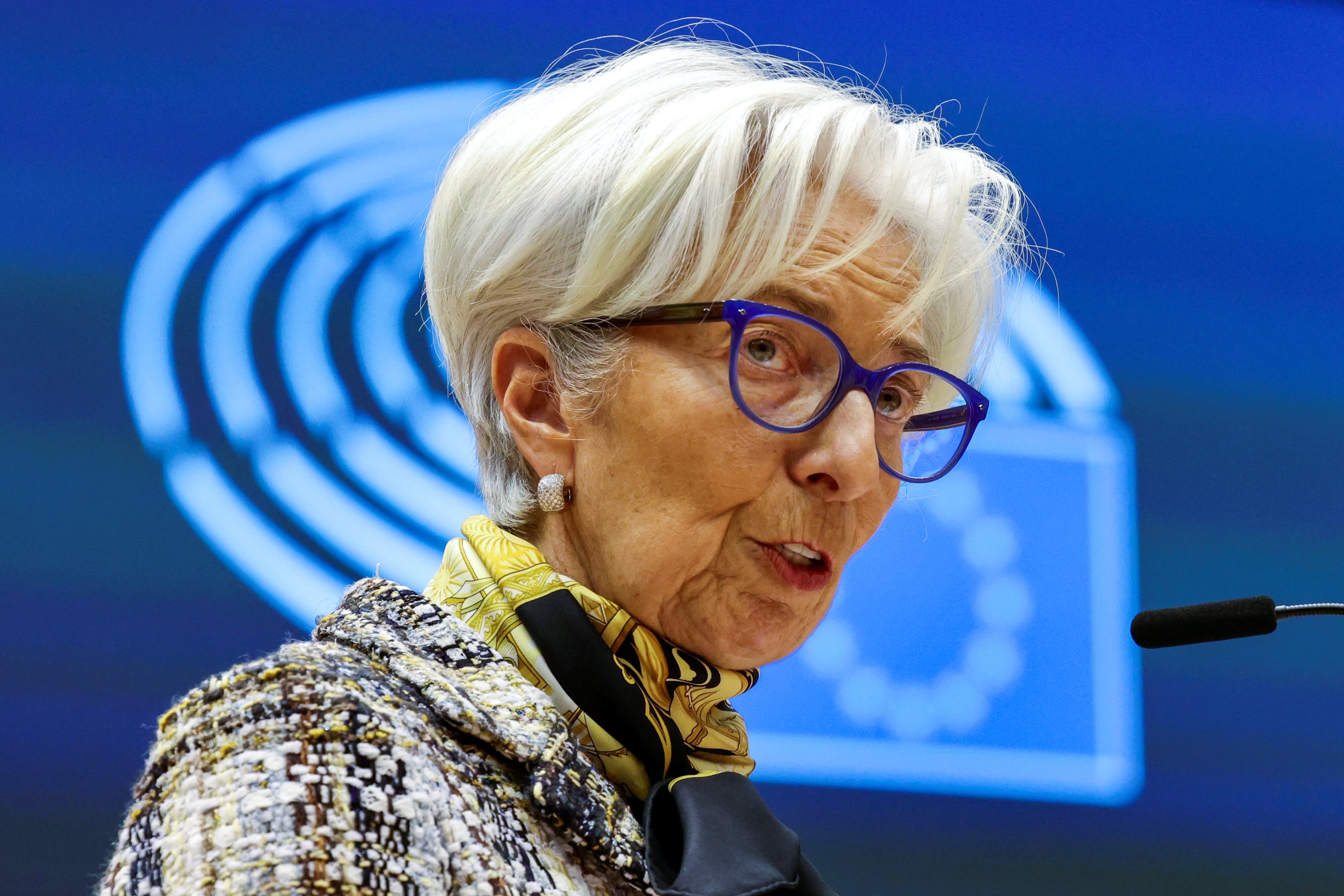European Central Bank vows a persistently accommodative stance in new guidance

The European Central Bank on Thursday held monetary policy steady, but tweaked its guidance to reflect its recently-hiked inflation target.
The ECB has committed to purchasing 1.85 trillion euros ($2.2 trillion) of bonds until March 2022 as part of its Pandemic Emergency Purchase Program, and policymakers voted to keep this stimulus on the table for the time being.
Interest rates were also left unchanged, with the rate on the main deposit facility remaining at -0.5%, the benchmark refinancing rate at 0% and the marginal lending facility at 0.25%.
However, the euro zone central bank's Governing Council revised its forward guidance on interest rates, having upgraded its inflation target to a symmetric 2% over the medium term at its recent strategy review.
The ECB said in a statement that it expects interest rates to remain "at their present or lower levels until it sees inflation reaching two per cent well ahead of the end of its projection horizon and durably for the rest of the projection horizon, and it judges that realised progress in underlying inflation is sufficiently advanced to be consistent with inflation stabilising at two per cent over the medium term."
"This may also imply a transitory period in which inflation is moderately above target," it added.
The dovish tilt effectively ties inflation closer to interest rates and was seen as a promise to be more accommodative for a longer period of time.
The euro quickly spiked to 1.1804 against the dollar on the news, but then lost those gains to sink to session lows of 1.1777.
With interest rates close to their lower bound for some time and inflation remaining below the Governing Council's target, the ECB also vowed to maintain a "persistently accommodative monetary policy stance" in order to meet its inflation target.
The latest ECB forecasts point to a headline inflation of 1.9% at the end of 2021, followed by a decrease to 1.5% and 1.4% in 2022 and 2023, respectively.
European stocks were little changed immediately after the announcement, with the pan-European Stoxx 600 holding onto most of the morning's gains.
Bond yields pulled back sharply, with the benchmark 10-year German bund yield sliding to -0.41% and the 30-year bund dropping to 0.074%.
A more 'forceful' toneXian Chan, chief investment officer for wealth management at HSBC, noted that the ECB's tone had become "more forceful."
"This is a key development the ECB needed to make because markets going into the meeting were unconvinced it could successfully stimulate activity and inflation," he said.
"The market (according to the 5Y5Y inflation swap) had been assuming inflation of just 1.6%, which is significantly lower than the 2% target."
Stock picks and investing trends from CNBC Pro:Fund manager names some 'hugely undervalued' global stocks that are a 'screamingly obvious' buy
UBS says space tourism could be a $4 billion market by 2030. Here's how to play it
JPMorgan is ‘bullish again’ and picks a new list of its top global stocks
In its June release, the ECB said it expects inflation to remain at an anemic 1.4% in 2023.
"So, the bank really needed to show how it could be more 'forceful or persistent' around forward guidance and it didn't disappoint," Chan said.
He suggested the central bank's tone would be supportive in the short-term for European stocks and the recovery trade, while the indication that rates could remain lower for longer could indicate a lower trade for the euro.
"We've got our eye on whether market-implied inflation starts to increase, as this will indicate how convinced markets are that the new forward guidance will be effective," Chan said.
Neil Birrell, chief investment officer at Premier Miton, said Thursday's statement makes clear that the ECB will let inflation and growth "run hot" rather than risk the bloc's economic recovery, maintaining its position in the "we will do what it takes" camp.
'Still a long way to go'In a press conference following the decision, ECB President Christine Lagarde said "there is still a long way to go before the damage of the economy caused by the pandemic is offset."
Inflation came in at 1.9% in June and the ECB expects consumer prices to increase further in the coming months, before declining again in 2022.
"The current increase in inflation is largely being driven by higher energy prices and by base effects from the sharp fall in oil prices at the start of the pandemic, and the impact of the temporary VAT reduction in Germany last year," Lagarde said.
"As the economy recovers, supported by our monetary policy measures, we expect inflation to rise over the medium term, although remaining below our target. While measures of longer term inflation expectations have increased, they remain some distance from our 2% target."
0 Response to "European Central Bank vows a persistently accommodative stance in new guidance"
Post a Comment